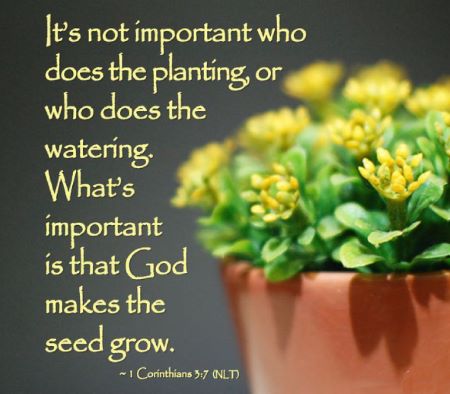
To What Do We Say “Yes?”
We need volunteers. Our churches, and churches in general always need volunteers. To serve on leadership. To serve on or head up committees. To run the A/V equipment. To set up for and clean up after Communion. To set up for and clean up after Coffee Hour. To count the offering. To serve as treasurer. To supervise the nursery and to teach Sunday School (when children are present). Those who have served need a break. Need a rest. Are moving away. Have died. We need volunteers.
Some of us say “Yes” to these opportunities because we have that experience, and understand that stewardship is not only about money, but is also about sharing our time and talent. Some of us say “Yes” because we want to gain that experience. Some of us say “Yes” as part of a spiritual gifts discernment. Some of us say “Yes” because we take some pride in our accomplishments. Some of us just say “I can do that.”
And I did. In 1992, when I attended St. Paul’s Episcopal Church in Greenville, Ohio, the Treasurer, who had served in that role for seventeen years, needed a break. Her approach was to manually record all-things-financial. She had done everything in large, red-covered ledger books. She recorded every pledge payment and every check written, every debit and every credit in columns with thin horizontal and vertical green and red lines. And of course, there was an adding machine. But she had had enough.
I had no accounting or bookkeeping experience (I had to take Algebra I twice). But I knew computers. And how they worked came to me somewhat intuitively. Maybe it ran in the family. Maybe it was in my genes. My mother’s brother was an electronics engineer. A man who graduated from the Massachusetts Institute of Technology. The kind of man who could almost assemble a television from a kit without even looking at the directions. And my only request was that St. Paul’s buy church accounting software. And they did. And so, I said “Yes” to picking up where Alice left off.
I said “Yes” in June. And what that meant, was that I not only had to enter everyone’s names and addresses and phone numbers and children’s names into the Contacts “module” (along with all the Vendors’ names and addresses and phone numbers); but had to manually re-enter six-months’ worth of data –– one transaction at a time –– into the computer’s database. Every pledge-payment received. Every check mailed out. Every reconciled monthly statement. And I had to do all of that as quickly as possible, since more transactions kept coming down the pike at me all needing to be entered too.
But when I got caught up, the quarterly pledge statements, the Income and Expense and the Profit and Loss statements, and the checking and savings accounts were balanced to the penny. And when January 1993 rolled around, I clicked one button (I think there was a mouse then), and the program printed the Parochial Report.
And when I said “Yes,” I didn’t realize how much I’d learn or that it would form me. Not only about the software and some accounting principles, but more so about many of the people behind the numbers. Personal stories shared with me about life circumstances, and the challenges some families faced, and the social systems which impinged their ability to thrive –– systems which work against our baptismal vows to strive for justice and peace for all people, and to respect their human dignity too.
One of the ways we live more fully into these vows is by participating in Safe Church (formerly Safeguarding God’s Children and Safeguarding God’s People) and Healing Racism training (CORE, Sacred Ground, etc.). This training helps unpack misconceptions about “the Other” and encourages the behaviors which help us live more fully into these vows. And those of you who are licensed to serve in various congregational roles are familiar with them from your own training. However, current lay licenses for everyone in our diocese will expire at the end of this liturgical year (on November 20). This would be for those more visible roles such as Eucharistic Minister and Eucharistic Visitor; but also for those congregations which have Preachers, Pastoral Leaders, Worship Leaders, Catechists, and Evangelists. New licenses when issued will be in effect until the first Sunday in Advent 2026; and both dioceses will then be able to operate on the same five-year cycle. Bp. Singh writes “I am neither interested in nor do I believe that these licenses are about “check the box” administrative tasks. They are a framework for formation, equipping, commissioning, and thanking.”
Serving in these roles comes with certain diocesan expectations: that you are confirmed or are working towards confirmation within the next twelve months; that you complete Safe Church online once every three years; and that you have completed some form of Dismantling Racism training in the past twelve months and commit to ongoing participation in Dismantling Racism formation opportunities. And of course, they are open to all who worship with us, even if you don’t serve in any of these roles but are simply interested in living more deeply into your vows. So, if you serve in one of these roles, I’ll be in contact with you to help keep your licensing current. Please let me know if you have any questions. And please say “Yes.”








